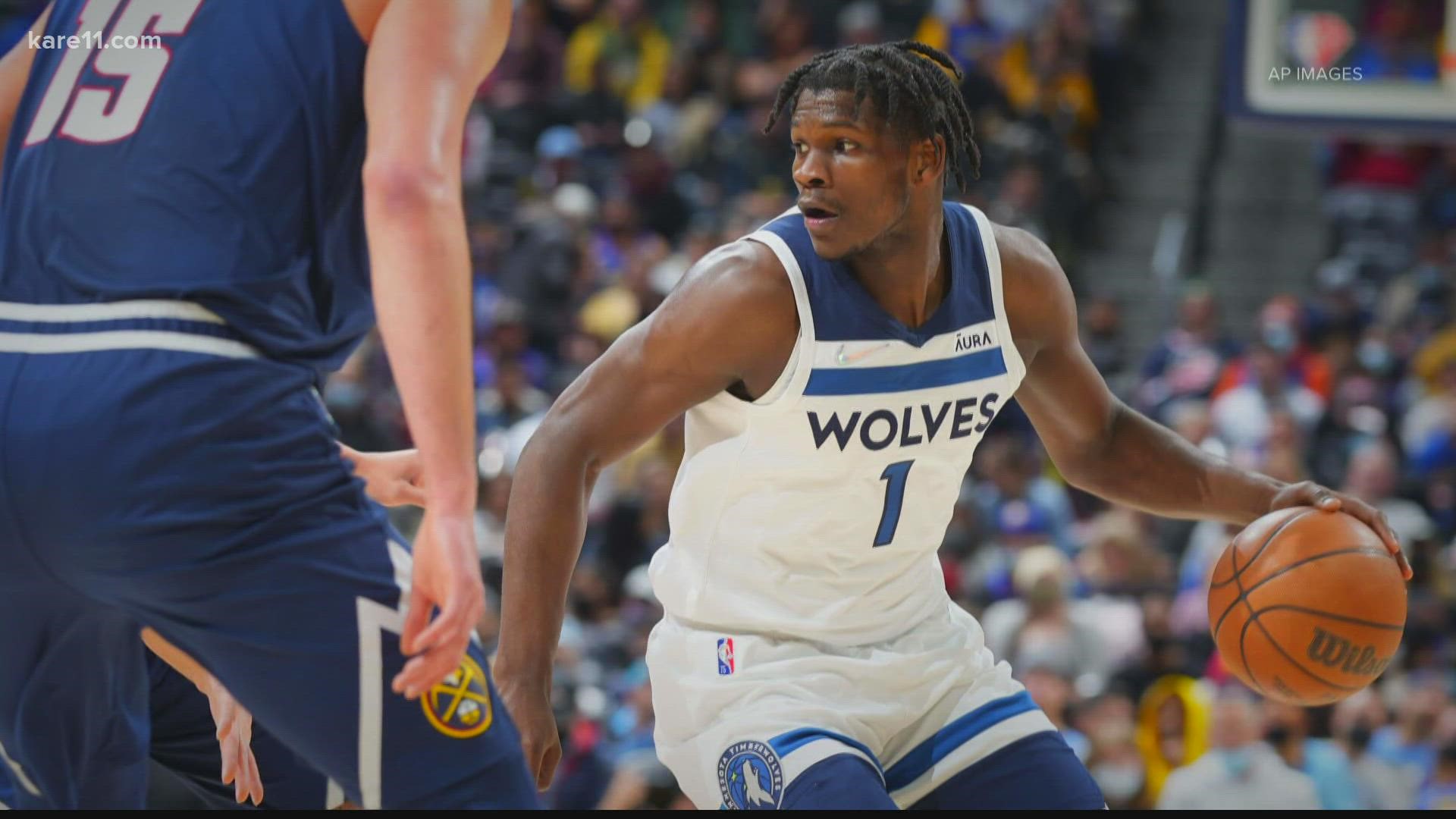MINNEAPOLIS — COVID-19 is impacting pro sports rosters and schedules so quickly right now, that it's hard to keep up.
On Friday, Minnesota sports fans learned that Timberwolves' Anthony Edwards would be sidelined for their game against the Los Angeles Lakers, the Wild won't play their Saturday game against the Florida Panthers and the Vikings will now be part of a Monday Night Football doubleheader.
That's just a local snapshot of a much larger issue across the NBA, NHL and NFL. As of Friday:
- 34 NBA players have entered league's COVID health and safety protocols in just four days.
- The NFL has rescheduled three Sunday games for either Monday or Tuesday night after three teams - the Cleveland Browns, Los Angeles Rams and Washington Football Team - each had more than 20 players on their reserve COVID lists.
- The NHL is pausing the seasons of the Colorado Avalanche and Florida Panthers until after Christmas and postponing Calgary Flames games through next Thursday.
"I think it's caught everyone by surprise," said Dr. Bill Morice, the president of Mayo Clinic Labs.
Since the start of the pandemic, Dr. Morice said the Mayo Clinic has consulted with professional leagues and several individual teams about COVID-19 protocols. He said for months, high vaccination numbers among players have helped the leagues avoid this kind of uncertainty.
"This is coming at really just a bad time for the leagues because we know, after six to eight months, that's when immunity starts to wane," Dr. Morice explained to Breaking The News. "We're also seeing transmission at a higher level right now, and that's why I think many of the leagues are struggling with unexpected numbers of positive players."
It's also why, within the last day, Dr. Morice said both the NFL and NBA have change their COVID protocols to better protect against breakthrough infections. The two leagues are both strongly encouraging booster shots, and adding more stringent masking, distancing and testing protocols - even for vaccinated players.
"Unfortunately, we're in another scenario where we don't have a complete picture about how to respond, so some of what I have seen is the league is being cautious," Dr. Morice said. "We don't have a test to say, 'Yes you have COVID, but no, you're not going to get sick.' I think the league is saying, 'We need to be cautious, because some people will get sick that have been previously vaccinated.'"
Dr. Morice said the good news is that the high vaccination rates have meant that few athletes have had severe cases, but he added that games, especially with full stadiums, may be in jeopardy until more is known about the potential impact of the omicron variant.
"I'm sorry for the pun, but it could be a real game-changer," Dr. Morice said. "On the one side, there's concern about a much more rapid increase in cases than we had anticipated. On the flip side, if (Omicron) doesn't make people as sick, it won't cause that demand for hospitalization that we have seen with other waves of COVID. We don't know that yet. That's what we're all waiting on and trying to figure out both sides of that coin. At this point, I think we have to just plan for the worst case scenario and hope for the best case scenario."
Watch more Breaking The News:
Watch all of the latest stories from Breaking The News in our YouTube playlist:

